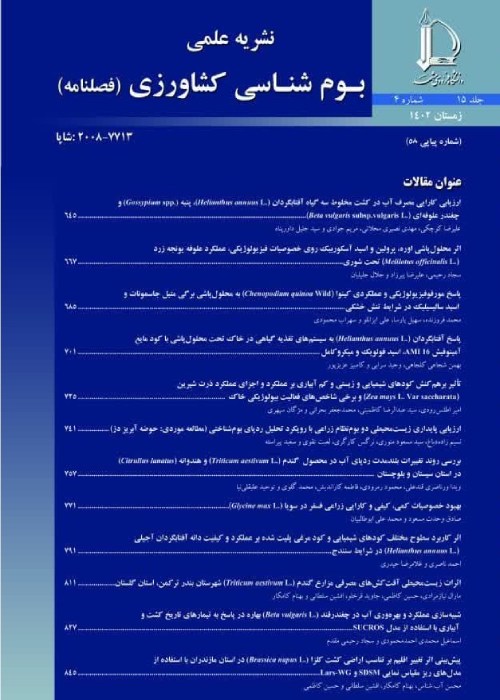The Ecological Footprint of Students for the Campus of Ferdowsi University of Mashhad (FUM)
Introduction :
The ecological footprint (EF) is an area of biologically productive land capable of meeting all human needs (food, clothing, and construction) and accommodating their production waste. Therefore, application of ecological footprint in combination with social and economic impact assessment can provide the basis for measuring triple sustainability indices (social, economic and ecological). Universities around the world are amongst the institutions that are increasingly focusing on promoting sustainability, and often use ecological footprints as a good indicator for measuring their sustainability. Universities are considered to be one of the largest consumers of paper, energy and water, and because they utilize these resources for education and research activities, it is expected that a sustainable university should have minimized adverse environmental, economic, social and health impacts and help society moving towards a sustainable life style. However, ecological footprint of Iranian universities is not documented. Therefore, the purpose of this study was to calculate the ecological footprint of students of Ferdowsi University of Mashhad as the third biggest university of the country.
Materials and Methods:
In this study, EF on the campus of Ferdowsi University of Mashhad (FUM) was calculated by using two standard international methods including Ecological Footprint Network (EFN) Questionnaire and Ecological Footprint Analysis (EFA). In EFN method the questionnaire designed by Global Footprint Network was used. In EFA method, the university information (consumption of energy, food, and construction) was obtained from the relevant departments and finally, the total footprint was calculated using the standard EF accounting method.
Results and Discussion:
The results showed that total ecological footprint of the campus was 1.51 g/ha, which is less than reported values for the world (2.80) and national (3.20) footprints. This is due to the fact that students use public transportation services and produce less waste. On the other hand, due to the recycling of a significant amount of waste produced at the university, the energy footprint of university students has decreased, which has ultimately reduced the total footprint of students compared to the national and global levels. The EF in this study consists of three components i.e. energy, food, and build up. Among the components, food with 57.3% had the highest share of total footprint and therefore had the most significant impact on increasing the total EF. After the food footprint, the energy with 0.35 g ha (23%), had the highest share of total footprint. While the Build up with 19.7 g ha, had the least significant impact on increasing the total EF. There was no difference between the EF of males and females students. However, the footprint of bachlor students was higher than Msc and PhD students. Architecture students had the most (1.77), while theology students had the lowest EF (1.30 g/ha). Finally, the results of the present study show that Ecological Footprint is one of the appropriate indicators for measuring the sustainability of universities and can help managers and decision makers in universities to move towards sustainability goals.
Conclusion :
The EF is an accurate index for evaluation of environmental sustainability, and since reconsideration of the current lifestyles should be started from academic societies, planning for a detailed accounting of EF for university campuses over the country is required.
- حق عضویت دریافتی صرف حمایت از نشریات عضو و نگهداری، تکمیل و توسعه مگیران میشود.
- پرداخت حق اشتراک و دانلود مقالات اجازه بازنشر آن در سایر رسانههای چاپی و دیجیتال را به کاربر نمیدهد.



